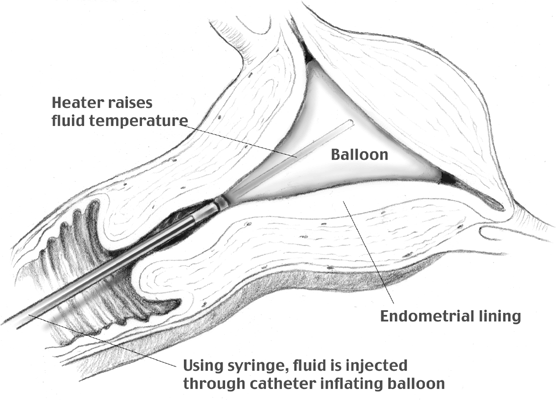Author bio: Guest post is provided by Dr. Berenholz of the Laser Vaginal Rejuvenation Institute of Michigan. Dr. Berenholz specializes in vaginal reconstruction surgeries such as labiaplasty in Michigan. For more information, check out his website.
Endometrial ablation is a procedure in which the inner lining of the uterus is removed. This procedure is right for women who regularly experience heavy menstruation, also known as menorrhagia. Heavy menstrual bleeding is something that many women experience, yet for certain women, every single period is heavy. It is best for women whose bleeding has not been responsive to other treatments and for those who a hysterectomy is not appropriate.

Endometrial ablation is a minimally invasive outpatient surgery which only typically takes an hour. It is characteristically done as an outpatient procedure and takes around 45 minutes. Most women can return home the same day they have the surgery.
This procedure is not suitable for all women, particularly those who have suffered from uterine cancer, use an IUD, or those that want to use the procedure as a form of contraception.
Endometrial ablation can be performed in different ways including with the use of a laser beam, heat or thermal ablation, electricity, a microwave and freezing. One type of endometrial ablation is cryoablation of the endometrium which is appropriate for pre-menopausal women who experience menorrhagia and some menstrual pain. Cryoblation uses a probe that’s been cooled to sub-zero temperature to remove the inner lining of the uterus. This procedure does not involve significant pain and the recovery time is typically very short. The side effects can vary from person to person but cramping, nausea, and bloody discharge are common symptoms. For some women, this procedure diminishes the menstrual flow and for others, the periods cease altogether.